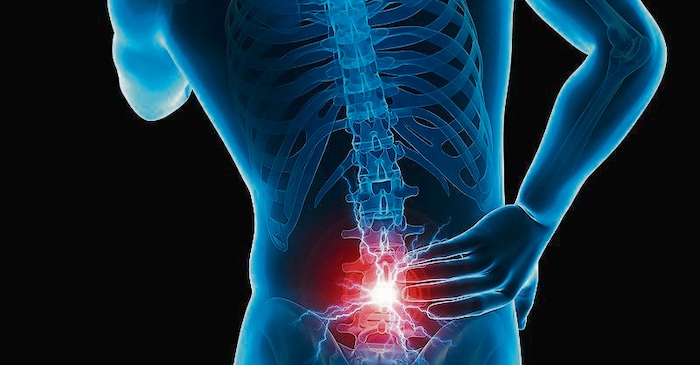
Lower back pain may occur while sitting or standing for a prolonged period. Pain may also occur when there is an active spinal movement, such as attempting to stand up and/or bend down.
Lower back pain can be an intermittent discomfort or a continuous ache. Sometimes, the pain may be particularly severe when you sit down, rise from a chair, or straighten your back after bending forward.
While in most cases the underlying cause of the pain can be identified, sometimes back pain may be non-specific with no identifiable cause.
Here are a few possible causes for severe low back pain in such situations.
Axial Back Pain
Pain that is localized to the lower back is called axial back pain. This condition can be acute or chronic and causes one or more of the following symptoms:
- Severe lower back pain upon slight movements
- Pain felt when external pressure is applied to the lower back
- A constant ache deep within the lower back
Axial back pain may be caused by various underlying causes. Degenerated discs, herniated discs, degenerated facet joints, and dysfunction of the sacroiliac joint are common mechanical pain generators of the lower back. The ligaments of the spinal canal and/or lumbar vertebrae or the weakening of spinal muscles can also cause axial back pain.
If the lower back pain increases while seated, and typically improves after standing, it may indicate a herniated disc in the lumbar region (lower part of the spine).
Increased activity of the trunk muscles
If you have chronic low back pain, your trunk muscles may be over-activated when you perform certain tasks. Common examples of such tasks include:
- Bending forward to pick up or put down an object
- Sit and/or stand
- Climb stairs
The increase in muscle pain during these activities occurs due to an abnormal adaptation of these muscles to guard the spine. Certain groups of muscles may be activated more than others, causing pain while performing specific tasks.
Coccydynia (tailbone pain)
Soreness or pain in the tailbone (coccyx) commonly occurs due to trauma and can become chronic and debilitating.6 Typical symptoms include severe pain during one or more of the following actions:
- Sitting down
- Leaning partly backward while sitting
- Sitting on hard surfaces
- Standing up from a seated posture
Coccydynia pain is abruptly relieved after standing up. Patients typically prefer to sit by leaning forward or lean onto one buttock or the other while sitting to avoid the tailbone pain.
Sacral Tumors
While rare, tumors or cancer in the sacrum (lower part of the spine) can cause pain while sitting and/or during the process of standing up. The most common type of tumor affecting this region is the sacral chondrosarcoma. The symptoms of this condition are vague, often causing a delay in diagnosis.
Early symptoms include8:
- Lower back pain
- Pain while sitting
As the tumor increases in size, sciatica (radiating nerve pain in the leg), urinary tract infections, and/or loss of bowel and bladder functions may occur.
Other examples of sacral tumors are giant cell tumor and plasmacytoma of the sacrum.8
When to See A Doctor
If you have lower back pain and/or severe pain during functional movements that are not relieved by self-care and medication, it is advised to seek medical attention. A doctor can help diagnose and treat the cause of your pain and also rule out serious conditions such as tumors, fractures, or infections of the spine.
In case of non-specific back pain, treatment options typically follow several combinations of nonsurgical treatments such as physical and/or massage therapy, prescription or over the counter (OTC) medication, and/or injections to see what works best.
Precision Pain Care and Rehabilitation has two convenient locations in Richmond Hill – Queens and New Hyde Park – Long Island. Call the Richmond Hill office at (718) 215-1888, or (516) 419-4480 for Long Island office, to arrange an appointment with our Interventional Pain Management Specialist, Dr. Jeffrey Chacko.















